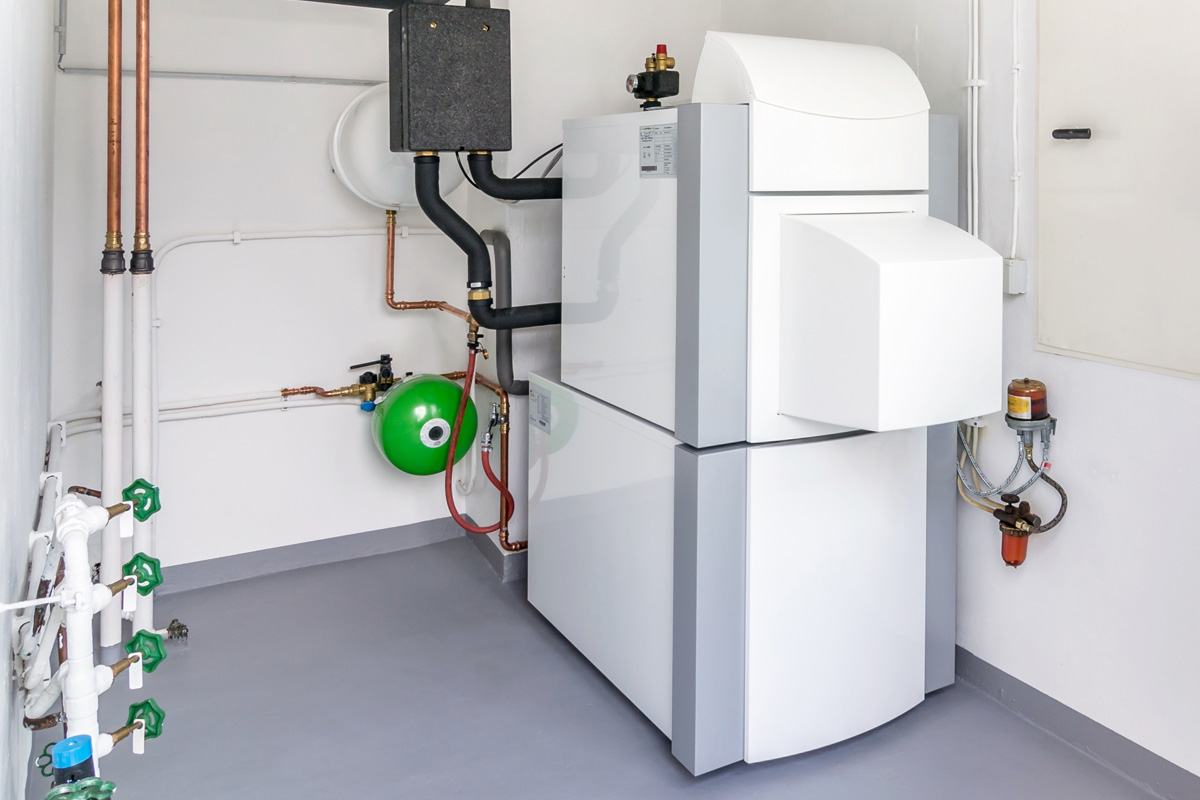The Oil Boiler Ban 2035: What's Changed?
Oil boilers which run on heating oil are a popular source of central heating and hot water in some properties – especially homes in rural areas that are not connected to the gas grid. But with successive governments intent on lowering carbon emissions, the oil boiler ban has been a concern for many, however, the government's target date for an oil boiler ban in existing properties has now changed to the year 2035.
Below we cover what’s changed and how this can impact homeowners and buy-to-let investors, especially in rural areas where investing in holiday lets and older properties may be reliant on this important method of heating.

-
by Robert Jones, Founder of Property Investments UK
With two decades in UK property, Rob has been investing in buy-to-let since 2005, and uses property data to develop tools for property market analysis.
Timeline of the Oil Boiler Ban
- Original Plan: Initially, the government planned to ban new oil boiler installations in off-grid homes from 2026.
- Current Plan: The ban has been pushed back to 2035, aligning with a similar ban on new gas boilers.
- 2035 Onwards: From this date, households replacing their heating systems will need to opt for low-carbon alternatives. This could potentially include HVO.
- 2050 Target: The ultimate goal is to achieve net-zero carbon housing and emissions by 2050.
It's important to note that the government has set a target of an 80% phase-out rate by 2035, rather than a complete ban. This means that by 2035, the aim is for 80% of homes to have transitioned away from oil boilers to more sustainable heating options.

What is the Oil Boiler Ban and Why Is It Happening?
The oil boiler ban is part of the UK government's strategy to decarbonise homes and meet net-zero emissions targets by 2050. It is part of a wider policy to improve the UK housing stock. Including a range of upgraded energy efficiency improvements. It impacts significantly how buy-to-let investors need to plan for improvements to the energy performance rating of their property investments.
Key points include:
- No Forced Changes: Existing oil boilers will not need to be replaced immediately. The ban applies to new installations from 2035.
- Low-Carbon Alternatives: From 2035, replacement heating systems must be low-carbon options, such as heat pumps or boilers compatible with renewable fuels like Hydrotreated Vegetable Oil (HVO).
- Environmental Impact: Oil boilers are being phased out due to their significant carbon emissions. Burning oil for heating produces much more carbon than burning natural gas or propane.
- Energy Security: The move aims to reduce reliance on fossil fuels and improve the UK's energy security.
Impact on Homeowners and Buy-to-Let Landlords
The extended timeline to 2035 provides more flexibility for homeowners and landlords. Key impacts include:
- Extended Transition Period: There's more time to plan and budget for future heating system changes.
- No Immediate Action Required: Existing oil boilers can continue to be used and serviced beyond 2035.
- Future-Proofing Options: When replacing boilers, homeowners can opt for models compatible with renewable fuels like HVO.
- Potential Cost Implications: In the long-term, there may be costs associated with transitioning to low-carbon heating systems.
- Property Value Considerations: Future buyers may factor in the heating system's ongoing maintenance and fuel usage cost when purchasing properties with oil boilers. This could affect the property valuation. Either positively if it provides a saving or negatively if it creates an increase in outgoings for the homeowner or tenants.
Government Grants and Financial Support
To assist with the transition to low-carbon heating systems, the government has introduced several support schemes:
- Boiler Upgrade Scheme: Offers grants of up to £7,500 towards the cost of installing heat pumps. You can apply here on the gov.uk website.
- Renewable Heat Incentive: While closed to new applicants in March 2022, existing participants continue to receive payments.
- Energy Company Obligation (ECO): Provides support for energy-efficient home improvements where people are considered to be in fuel poverty, including heating system upgrades. Available up to 31st March 2026. Find out if you are eligible for the current ECO4 flex scheme here.
- Possible Future Schemes: The government may introduce additional support as the 2035 deadline approaches.

Oil Boiler Alternatives
Several alternatives to traditional oil boilers are available:
- Heat Pumps: Air source and ground source heat pumps are promoted as the primary alternative. However, they may not be suitable for all properties, particularly they have mixed results with older or poorly insulated homes.
- Biomass Boilers: These burn wood pellets, chips, or logs and biomass can be a good option for rural properties.
- HVO-Compatible Boilers: Many modern oil boilers are already compatible with Hydrotreated Vegetable Oil (HVO), a renewable liquid fuel that can reduce carbon emissions by up to 90%.
- Hybrid Systems: Combining a heat pump with a traditional boiler can offer a balance between efficiency and practicality.
Frequently Asked Questions
Q). Will I be forced to remove my existing oil boiler?
A). No, existing oil boilers can continue to be used and serviced beyond 2035. The suggested ban currently applies to new installations from that date.
Q). Can I still repair my oil boiler after 2035?
A). Yes, repairs and maintenance of existing oil boilers will still be permitted after 2035.
Q). What if I live in a rural area without access to mains gas?
A). The government recognises the challenges faced by off-grid homes and is exploring various low-carbon alternatives, including renewable liquid fuels like HVO.
Q). Are there any exemptions to the ban?
A). Yes, the government has indicated there will be exemptions for households that would struggle most to switch to low-carbon heating alternatives. Specific criteria for exemptions are yet to be finalised.
Q). Is it worth installing a new oil boiler now?
A). Installing a new, efficient oil boiler that's compatible with HVO could be a good solution. These boilers can run on conventional heating oil now and potentially switch to HVO in the future if this requirement comes in. It will also help reduce your carbon emissions.
Q). How do running costs compare between oil boilers and alternatives like heat pumps?
A). Currently, oil heating remains one of the cheapest options. Heat pump running costs can be higher due to electricity prices. However, this may change in the future as technology improves and energy prices fluctuate.
Conclusion
In conclusion, the oil boiler ban represents a significant change for many households if you have this type of heating in your home.
However, the extended timeline to 2035 provides ample opportunity to plan for the transition.
Homeowners and buy-to-let investors should consider their individual circumstances, property characteristics, and long-term plans when deciding on what is the best heating option for them currently and in to the future.
Consider initial purchase costs, ongoing maintenance costs, running costs for the fuel and of course your carbon footprint, as the move towards net zero has been a target for successive governments.
If you can reduce the carbon emissions of your heating this is not only good for the environment but helps put you in a good position if any swift government legislation does indeed come into effect.
